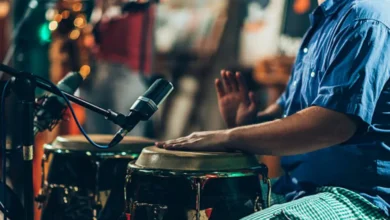South Africa, a nation celebrated for its vibrant diversity, is increasingly capturing the world’s attention. Its unique culture, a rich tapestry woven from diverse ethnic groups and historical experiences, is moving from the periphery to the global stage.
But what exactly is causing this surge in interest? This article will explore the key reasons behind South Africa’s growing global recognition, delving into its art, music, cuisine, and socio-political narratives that resonate far beyond its borders.
A Nation Forged in Diversity: The Roots of South African Culture

South Africa’s cultural landscape is a direct product of its complex history. The interaction between indigenous African groups, European settlers, and later, indentured laborers from Asia, created a melting pot of traditions, beliefs, and practices. This amalgamation, while often fraught with challenges, resulted in a dynamic and captivating cultural expression. Understanding this history is crucial for appreciating the nuances of South African culture.
The Legacy of Indigenous Cultures
Before European colonization, South Africa was home to a variety of indigenous groups, each with their distinct languages, customs, and artistic expressions. The Zulu, Xhosa, Ndebele, and San peoples, among others, developed rich oral traditions, intricate beadwork, and powerful musical styles.
See also Ancient Burial Rituals and Their Cultural Significance
Ancient Burial Rituals and Their Cultural SignificanceThese traditions, while sometimes marginalized during colonial times, have experienced a resurgence in recent years and are now recognized as vital components of South African heritage. The resilience of these cultures forms the backbone of the nation’s identity and contributes significantly to its global appeal.
The Influence of Colonization and Apartheid
The impact of European colonization and, subsequently, apartheid, cannot be ignored. These historical periods dramatically shaped South African society and culture. While colonization brought about oppression and discrimination, it also introduced new influences in language, religion, and social structures.
Apartheid, a system of racial segregation, created a deep wound in the nation’s fabric but also inadvertently fueled a powerful cultural resistance. The arts, in particular, became a powerful tool for expressing dissent and fostering solidarity. This legacy of struggle, resilience, and ultimately, reconciliation adds a layer of depth and complexity to the South African narrative.
Artistic Expressions: A Window into South Africa
South African art is a powerful vehicle for storytelling, reflecting both its history and the aspirations of its people. The vibrant colors, bold patterns, and intricate details evident in its various art forms have resonated with a global audience.
See also Balinese Traditional Dress in Hindu Ceremonies and Offerings
Balinese Traditional Dress in Hindu Ceremonies and Offerings
The Rise of Contemporary Art
South African contemporary art is exploding onto the international scene. Artists like Zanele Muholi, William Kentridge, and Mary Sibande are gaining global recognition for their thought-provoking pieces that grapple with issues of identity, history, and social justice.
Their work is not only visually striking but also offers valuable insights into the complexities of the South African experience. The increasing prominence of these artists and the global art market’s engagement are pushing South African art into the spotlight.
Traditional Crafts and Visual Arts
Traditional crafts continue to play a significant role in South African culture. From the intricate beadwork of the Zulu people to the colorful Ndebele house paintings, these art forms represent a continuity of traditions passed down through generations. These crafts are not mere relics of the past; they are living, evolving expressions of cultural identity, sought after by art collectors worldwide. The resurgence in popularity highlights the value placed on unique craftsmanship and authentic cultural expressions.
The Rhythm of the Rainbow Nation: Music and Dance
Music is the lifeblood of South Africa, a diverse and vibrant symphony reflecting the nation’s rich heritage. From traditional rhythms to contemporary beats, South African music is capturing hearts and minds across the globe. The energy and stories embedded in South African music contribute significantly to its global recognition.

Traditional Music: A Tapestry of Sounds
Traditional South African music encompasses a wide range of styles, each unique to different ethnic groups. From the hypnotic rhythms of the marimba to the powerful harmonies of isicathamiya (a capella singing), these forms represent a deep connection to ancestral roots.
The music often incorporates complex polyrhythms and call-and-response patterns, reflecting a rich oral tradition. These traditional forms are increasingly featured in international festivals and concerts, introducing audiences to the depth and diversity of South African music.
The Rise of Afro-House and Amapiano
Contemporary South African genres, like Afro-house and Amapiano, are rapidly gaining global popularity. These genres seamlessly blend traditional African rhythms with electronic beats and elements of jazz and soul.
They have created a distinct South African sound that resonates with a younger generation worldwide. The viral nature of these genres, facilitated by digital streaming platforms, has propelled South African artists onto the global music scene, contributing significantly to South Africa’s cultural impact. The dance moves that accompany these genres are equally influential, adding a visual dimension to the musical experience.
A Feast for the Senses: South African Cuisine
South African cuisine is as diverse as the nation itself, reflecting the influences of indigenous groups, European settlers, and immigrants from various parts of the world. This culinary fusion offers a unique and flavorful experience that is increasingly attracting international attention.

A Melting Pot of Flavors
South African cuisine is characterized by its use of fresh, seasonal ingredients and bold flavors. Dishes like bobotie (spiced minced meat baked with an egg custard topping), braai (barbecue), and biltong (air-dried cured meat) are popular examples of the country’s unique culinary offerings.
The interplay between African spices, European culinary techniques, and Malay influences has created a unique culinary identity. This diversity is being increasingly recognized and celebrated on the international culinary scene.
The Growing International Interest
South African restaurants are popping up in major cities around the world, introducing international diners to the flavors and textures of the country’s cuisine. Chefs are also using local South African ingredients to create innovative dishes that showcase the nation’s culinary potential. This trend is not just limited to fine dining; South African street food is also becoming increasingly popular, adding a further dimension to the growing appreciation of South African gastronomy.
Socio-Political Narratives: The Power of Resilience
Beyond the artistic expressions, South Africa’s socio-political narratives are contributing significantly to its global recognition. The country’s journey from apartheid to democracy, while far from perfect, serves as a powerful example of resilience, forgiveness, and the pursuit of justice.

The Legacy of Reconciliation
South Africa’s transition to democracy after decades of apartheid was a remarkable feat of reconciliation. The establishment of the Truth and Reconciliation Commission (TRC) was a groundbreaking initiative that sought to heal the wounds of the past by fostering dialogue and forgiveness.
This process, while not without its critics, has had a profound impact globally, serving as a model for other countries grappling with histories of oppression. The lessons learned from South Africa’s reconciliation process continue to resonate around the world.
A Voice for Social Justice
South Africa’s struggle for social justice and equality has become a powerful global symbol. The nation’s constitution, regarded as one of the most progressive in the world, guarantees fundamental human rights and promotes social inclusion. This commitment to social justice has elevated South Africa’s standing on the global stage and has made it a voice for marginalized communities worldwide. The ongoing fight for equality in South Africa continues to capture the attention of human rights advocates around the globe.
The Role of Global Platforms and Media
The rise of digital platforms and social media has played a vital role in amplifying South African voices and showcasing its culture to a global audience. These platforms have enabled a direct connection between South African artists, thinkers, and creators with the world.
The Power of Digital Media
Social media platforms like Instagram, TikTok, and YouTube have become important tools for sharing South African culture with a global audience. Artists, musicians, and content creators are using these platforms to showcase their work and reach new audiences. The viral nature of digital content has helped spread the reach of South African culture and has contributed to its rapid recognition. The democratizing power of the internet has allowed South Africans to tell their stories on their own terms.
International Collaborations
International collaborations in art, music, and film have also contributed significantly to South Africa’s global recognition. When South African artists and creators collaborate with international counterparts, they bring their unique perspectives and talent to the world stage.
These partnerships help build a global audience for South African art and provide a platform for cross-cultural exchange. The visibility afforded by these collaborations has helped propel South African talent onto the international scene.
Conclusion: A Bright Future for South African Culture

In conclusion, the rising global recognition of South African culture is a result of a multitude of factors. Its rich history, diverse artistic expressions, vibrant music scene, unique cuisine, and compelling socio-political narratives all play a part in attracting global attention.
The resilience and creativity of the South African people, combined with the amplifying power of digital platforms and international collaborations, have propelled this nation onto the world stage. As South African culture continues to evolve and adapt, its global influence will undoubtedly continue to grow, making it a vital voice in the global cultural landscape. The future looks bright for this dynamic and inspiring nation.“`




